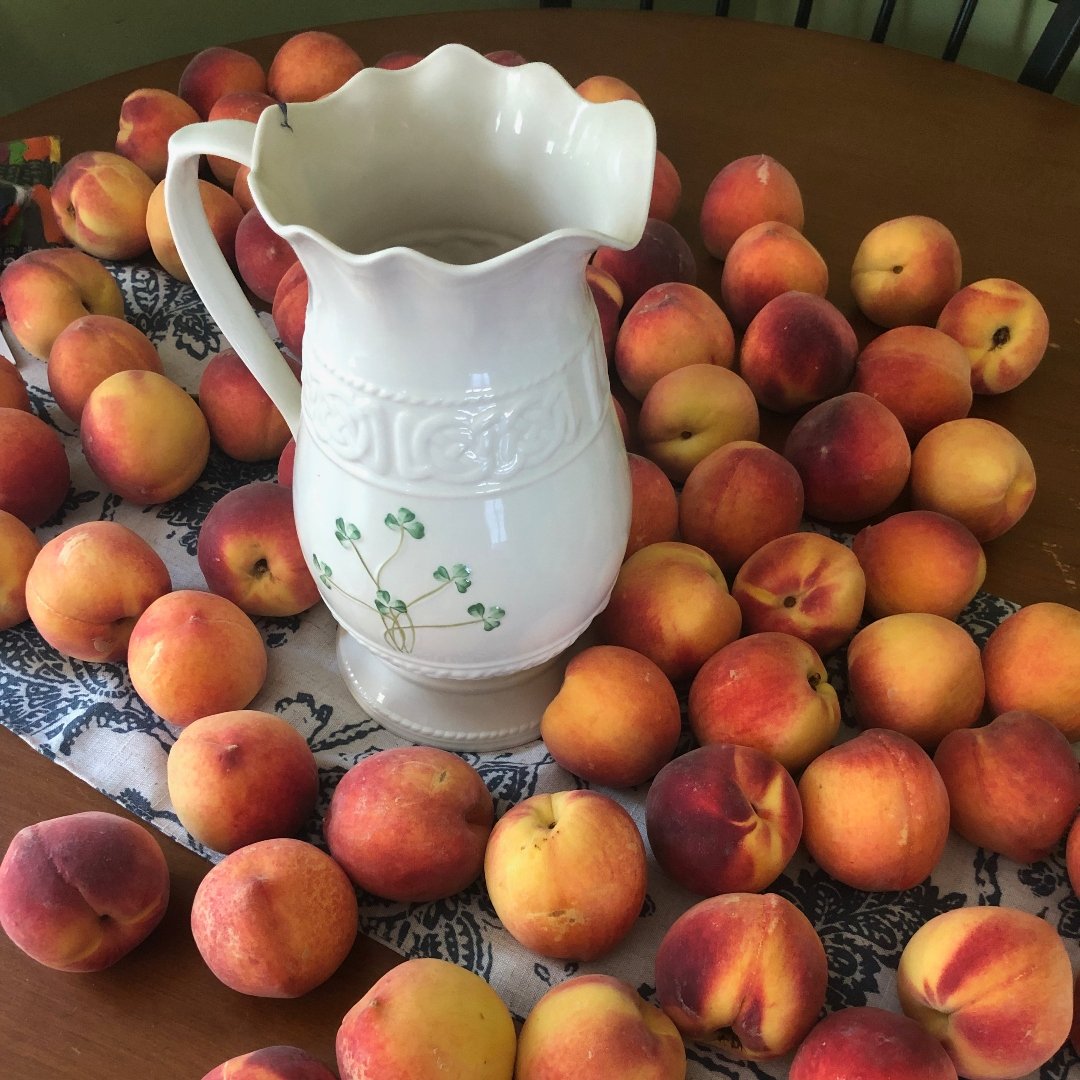
Kerry Campbell considers how contemplation of the wonders of nature can bring us closer to God.
Summer is a wonderful time to contemplate God through nature because we can find God’s patterns, creativity, and extravagance pretty much everywhere we look in the summertime in the things that God has made. Whether it’s the ocean or the mountains, a summer storm or a fruit or vegetable, intentional focus on some small part of God’s creation can bring us closer to understanding Him and how He works.
As we consider contemplation, it may be helpful to remember a few guidelines.
- Let’s let God lead us toward our object of contemplation by asking the Holy Spirit for help. This can be as simple as praying, "Come Holy Spirit."
- Let’s give God a block of uninterrupted attention and time as we contemplate.
- Let’s ask God to guide our contemplation and any insights that might flow from the experience. Again, a quick prayer here will suffice.
- Let’s remember that time spent in contemplation is itself a prayer.
Here, I’ll describe three aspects of nature which I recently contemplated, and I’ll share with you some insights I received from this time of contemplation, but just a reminder that your contemplation will and should look totally different from mine. As we spend time in contemplation, we’re strengthening our relationship, the communication and communion between one unique soul and God who made that soul, so we shouldn’t expect our contemplation to look or sound like anyone else’s encounter. So, with that understanding, here’s a bit of my experience in contemplating a blade of grass, a patch of sky, and a perfect peach.

I lay on a blanket in my yard one summer afternoon and asked God to direct my gaze and my thoughts. I turned my head to the side, and there found a blade of grass that had grown to seed, that is that it had created seed pods at the top, and as I took it in and examined it for a while, I reflected on how grass can mirror the pattern of our lives, too—like that grass, we sprout in the quiet and the dark, we grow in up community with others with the help of the sun and water (sun and water always represent Jesus and the Holy Spirit for me in my own contemplation).
After a time of growing, our energy and purpose shifts away from our own growth to the production of seeds. At a certain point, the main function of the grass becomes helping other grasses to grow. And of course, the same is true of us. This time of contemplation helped me to cultivate an understanding of God as a good planner who makes a way in the short span of our lives to provide for the growth of the ones who will come after us.
That same day, as I lay on the blanket and looked up, I disciplined my gaze to remain on the patch of sky just above me. I don’t know about you, friend, but normally, I’m a scanner—always looking to see what’s blowing in next, in the sky, sure, but also in life. But on this day, I felt a prompting to look only directly up, kind of like a horse with blinders on, I guess. As I did, I saw clouds and birds and even airplanes entering that patch of sky, and I had a little epiphany about my tendency to scan. Whether it’s the sky or my life or the lives of those I love, scanning as a practice is mostly unhelpful to bring or prevent anything from coming in. After all, I’m not steering the planes or the birds or the clouds. I’m only human.
There’s an element of trust in letting the winds blow where they will and watching to see what will happen. Truthfully, I’m still working on this and probably always will be, to be honest, but in looking up that day to one little patch of sky and not scanning the entirety of it helped me to understand that it’s not all mine to harness and control, and this helped me to cultivate an understanding of God as not only much bigger than me, but also as trustworthy.
The last element of nature I contemplated this week is a perfect peach—actually, lots of perfect peaches. I’m a foodie who kind of obsesses over good produce and for the second year in a row, I got a 25-pound box of peaches from a place called The Peach Truck which grows and ships the very best peaches you’ve ever had. You pick up your box from a peach tour stop near you, lay them out on a table in a single layer, wait 1 to 3 days, and then they’re ready.

Well, twenty-five pounds of peaches is a lot of peaches and there’s a limited window of time to enjoy them. I’ve cooked with them, shared them, eaten a ton of them, even taken their gorgeous picture, and each time I encounter one of these peaches, I marvel at God’s kindness to create such a beautiful and delicious thing with which to feed us, and with a seed inside as well. These beauties are ambassadors not only of God’s goodness and creativity, but of my care to the people I’ve shared them with, too. And this reflects the overarching principle of God’s intention in how He made all of nature, including us: God gives, we receive, and we pass it on.
This summer, as we take a closer look at the things God has made in prayerful contemplation, I pray we’ll draw closer in relationship and understanding of our very good God who longs for closer communion with us. What a fruitful way to spend these summer days.
Copyright 2022 Kerry Campbell
Images: (top) Canva; pitcher with peaches photo copyright 2022 Kerry Campbell, all rights reserved.
About the Author

Kerry Campbell
Kerry Campbell is a Catholic-Christian preschool music teacher, church cantor, writer, full-time noticer, and Mom to two college students. She’s letting the details of her life inform her wider view in the suburbs of Boston, Massachusetts. She loves connecting with readers, so find her writing at MyLittleEpiphanies.com and please say hello!


.png?width=1806&height=731&name=CatholicMom_hcfm_logo1_pos_871c_2728c%20(002).png)
Comments